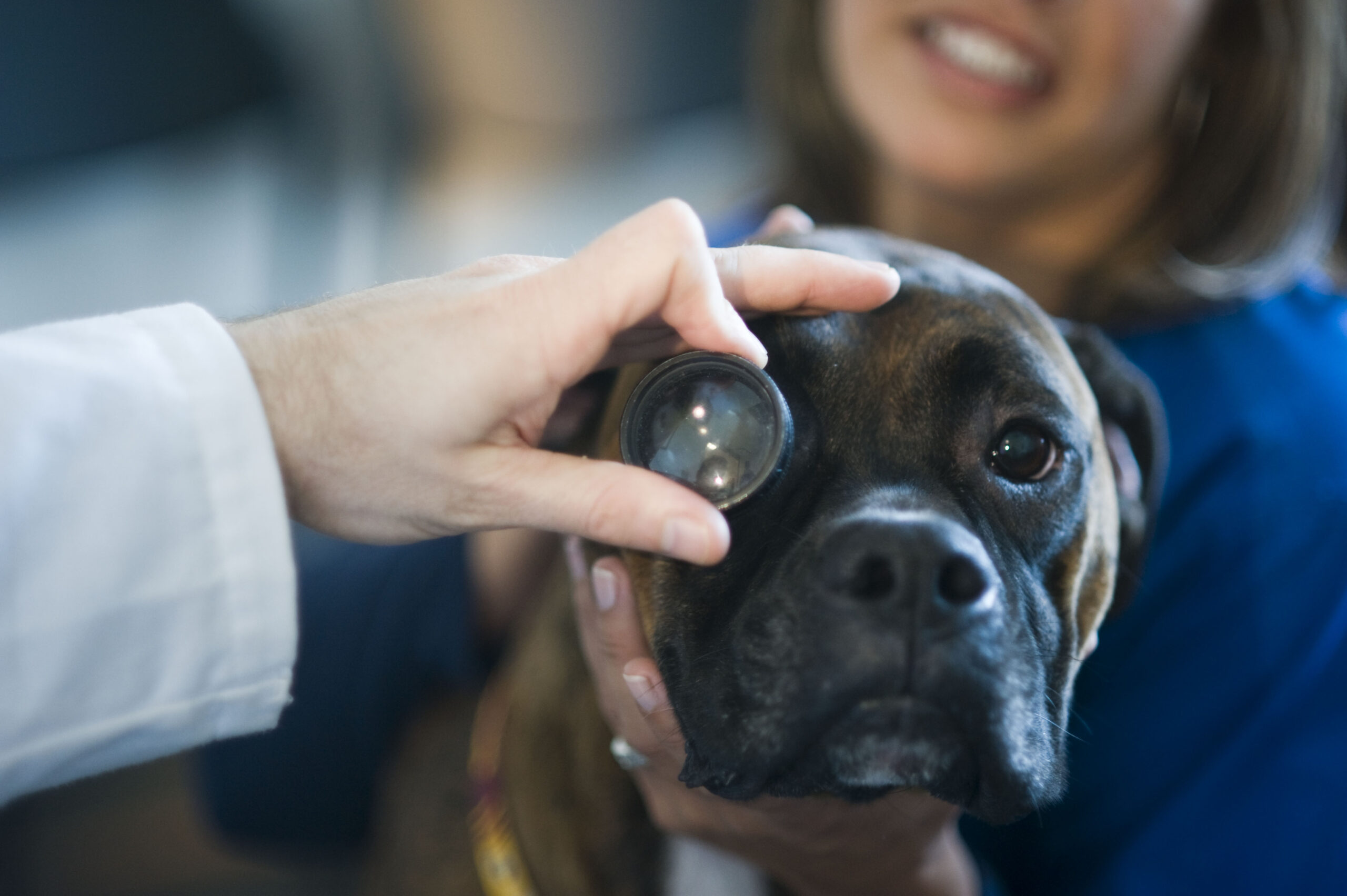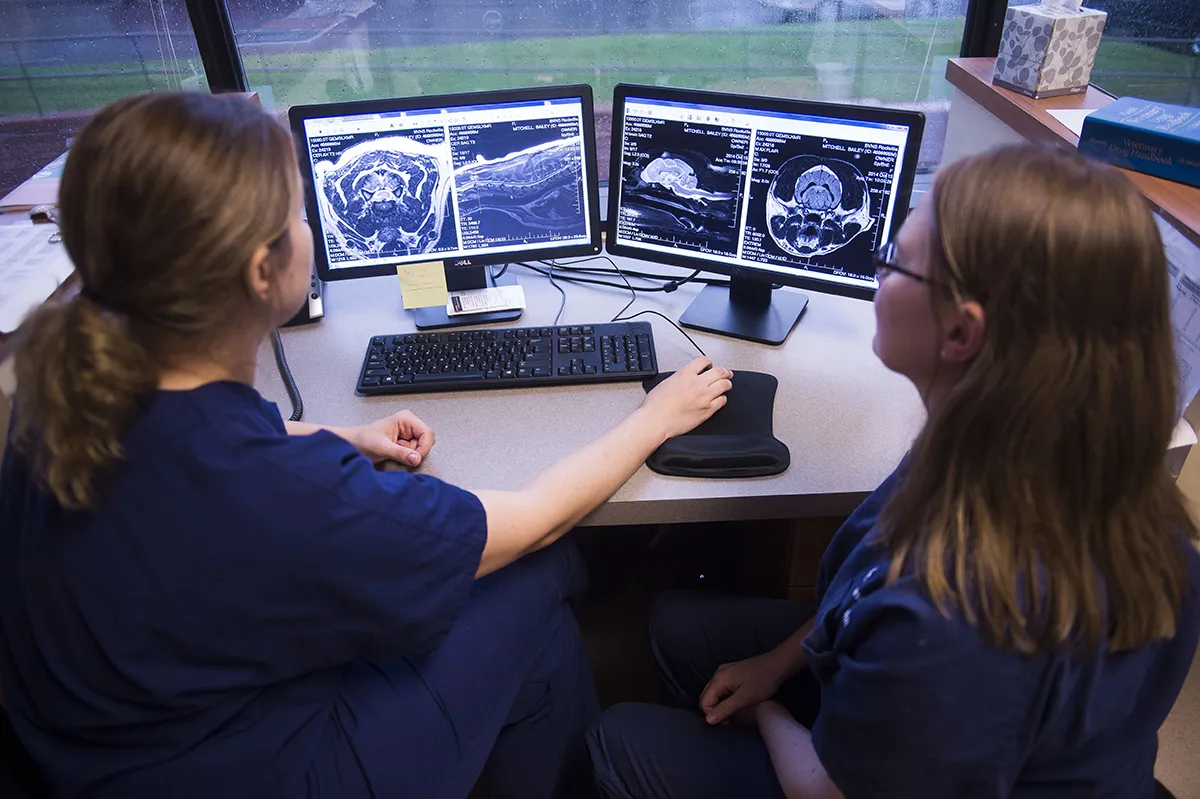
When Does My Pet Need a Veterinary Neurologist?
Veterinary neurologists are specially trained to treat nervous system disorders affecting a pet’s brain, spinal cord, and nerves. Your pet may need to see a veterinary neurologist if they experience conditions such as seizures, spinal cord injury, brain tumor, or vestibular disease. Highly educated, board-certified veterinary neurologists lead BVNS’s Veterinary Neurology Service team, and they understand veterinary neurology’s complicated science, as well as how to provide compassionate care.
What is a veterinary neurologist?
To become a veterinary neurologist, a veterinarian must commit to many years of intensive training and education. In addition to completing undergraduate courses, finishing veterinary school at an American Veterinary Medical Association (AVMA)-accredited veterinary university, and passing the North American Veterinary Licensing Examination (NAVLE), other requirements include:
- Internship — After graduating from veterinary school and passing the NAVLE, someone interested in becoming a veterinary neurologist must complete a one-year internship at an approved veterinary university hospital or at a veterinary practice to gain hands-on experience.
- Residency — The next step for an aspiring veterinary neurologist is a three-year residency in which they receive mentorship from one or more board-certified veterinary neurologists. A residency advances a potential specialist’s education and training in the neurology field.
- Board certification — After completing these rigorous requirements, the veterinarian has to take a series of examinations to demonstrate their knowledge in general internal medicine as well as in advanced neurology. Once the veterinarian successfully passes these examinations and completes their credentialing requirements, they are recognized as a Diplomate of the American College of Veterinary Internal Medicine (DACVIM) in Neurology.

What conditions do veterinary neurologists treat?
Neurologists treat conditions that affect your pet’s brain, spinal cord, and nerves. Examples include:
- Neurologic examination — A neurologic examination involves a thorough physical exam as well as an evaluation of your pet’s mental status, gait and body posture, cranial nerve examination, and reflex testing.
- Cerebrospinal fluid (CSF) analysis — Evaluating your pet’s CSF can help detect infection, inflammation, and certain diseases.
- Computed tomography (CT) scan — A CT scan uses a rotating X-ray tube to image your pet in multiple planes. In some cases, we use contrast material during a CT scan to detect spinal cord abnormalities.
- Magnetic resonance imaging (MRI) — MRI is an excellent diagnostic tool for imaging the brain and spinal cord because the technology allows our team to image your pet in all three dimensions in extremely thin slices. MRI enables us to get a detailed representation of your pet’s anatomy and identify any abnormalities.
- Electroencephalography (EEG) — An EEG involves attaching electrodes to your pet’s scalp to measure their brain’s electrical activity.
- Electromyography (EMG) — An EMG measures muscles’ electrical activity.
- Brainstem auditory evoked response testing (BAER) — BAER testing detects hearing loss by measuring brain wave activity in response to clicks and tones.
- Nerve conduction velocity (NCV) — An NCV test evaluates nerve function by measuring an electrical impulse’s conduction speed through the nerve.
When does my pet need a veterinary neurologist?
Primary veterinarians are not trained to treat severe neurologic conditions, nor do they have the sophisticated neurologic testing equipment necessary in their clinics. If your primary care veterinarian believes your pet has a severe neurologic condition, they will refer your pet to a veterinary neurologist. Reasons your pet may need to be seen by a veterinary neurologist include:
- Your pet has a neurologic condition that is not improving or getting worse despite your primary veterinarian’s treatment.
- Your primary veterinarian is not comfortable treating your pet’s neurologic condition.
- Your primary veterinarian can’t determine the cause of your pet’s neurologic signs.
- Your pet’s seizures aren’t controlled with medication.
- Your pet has brain trauma.
- Your pet is paralyzed in one or more limbs.
- Your pet needs advanced imaging to diagnose their neurologic condition.
- Your pet’s breed has a high risk for a specific neurologic disease, and you want them screened as a potential preventive measure.
If your pet has a neurologic condition, our Bush Veterinary Neurology Service team will work closely with your primary veterinarian to determine the correct diagnosis, implement treatment, and ensure they receive the care and ongoing check-ups they need. Contact us if you would like to schedule an appointment or if you have questions about your pet’s condition.
-->